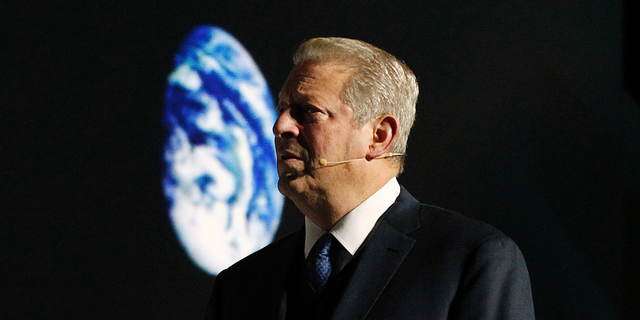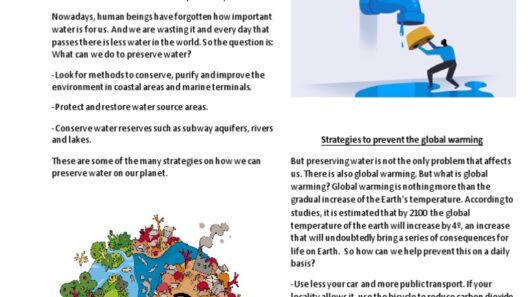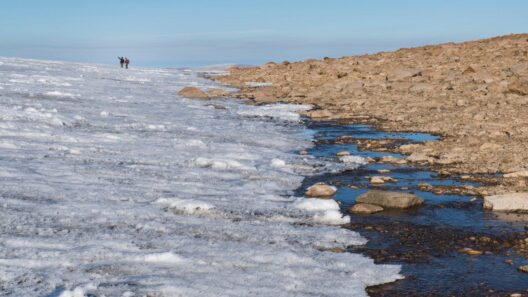Al Gore, the former Vice President of the United States, has been a prominent figure in the dialogue surrounding climate change. Since the late 1990s, he has made numerous predictions about global warming, many of which have sparked fervent debate and scrutiny. The discussion surrounding the accuracy of Gore’s predictions often transcends mere analysis; it taps into a profound emotional and ideological context that underscores the broader climate crisis.
One of the most frequently cited predictions made by Al Gore was the alarming assertion that the Arctic could be ice-free by 2014. As we reflect on the outcome of that assertion, it is essential to consider the dynamics at play in climate science. In some respects, that specific prediction did not materialize; however, it is critical to unpack the layers of data that inform our understanding of climate projections. The Arctic has indeed seen a dramatic reduction in ice volume—and while it has not been entirely ice-free, summer ice extents have consistently hit record lows over the past decade, indicating an alarming trend.
The fascination with Gore’s predictions often stems from the stark juxtaposition of empirical evidence against the backdrop of political discourse. Skepticism toward climate change has been prevalent, particularly in certain political circles. This skepticism contributes to a broader narrative that tends to dismiss alarming forecasts simply on the basis of inaccuracy, rather than engaging with the complex scientific underpinnings that inform these predictions. Dismissing climate models as flawed not only misrepresents the rigor of climate science but also ignores emergent challenges faced by societies globally.
Another pivotal moment in Gore’s predictions came in 2006 with the release of his documentary, “An Inconvenient Truth.” This film garnered both critical acclaim and added to the controversy surrounding his forecasts. It laid out scenarios of potential disasters linked directly to climate change, including rising sea levels inundating coastal cities and extreme weather events becoming more frequent and intense. While some critics claimed that the film overstated the immediacy of these threats, the reality is that many observations align with the warnings Gore articulated. Sea levels have indeed risen, and the frequency and intensity of hurricanes and other natural disasters have escalated in recent years. Such phenomena lend credence to Gore’s cautionary tales.
The disconnect between Gore’s predictions and public perception is layered and multifaceted. A common observation is the tendency for audiences to latch onto momentary inaccuracies while neglecting the long-term accuracy of the overarching message: climate change is an urgent crisis that requires immediate and sustained action. This focus often illustrates a deeper cultural and political resistance towards accepting uncomfortable truths, especially when they challenge prevailing economic frameworks or lifestyle choices. The resistance to acknowledge the reality of climate change, compounded by misinformation, complicates the landscape in which these predictions are discussed.
Moreover, the notion of “scientific predictions” often invites scrutiny through a lens that is not entirely conducive to the nature of scientific inquiry. Climate science incorporates numerous variables, many of which are interconnected in complex and nuanced ways. Predictions are typically framed as probabilities rather than certainties; they account for various socio-economic scenarios and feedback loops inherent to Earth’s systems. Assigning absolutes to predictions derived from such multifaceted models is not only reductionist but dangerously misleading.
The implications of Al Gore’s predictions extend far beyond individual forecasts; they reflect a systematic understanding of how climate change manifests and the urgency of acknowledging this reality. Far from being solely a commentary on Gore’s accuracy, engaging with his predictions invites a broader discourse surrounding climate literacy and the need for collective action. The conversation surrounding the veracity of these predictions reveals deep-seated biases and fears regarding both the implications of climate change and the societal transformations required to address it.
While discussions on Gore’s climate predictions might seem to be an exercise in evaluating accuracy, they unveil deeper questions related to human behavior, responsibility, and the socio-political landscapes that shape our understanding of environmental issues. The media narrative focusing on the sensational aspects of Gore’s statements often overshadows the substantive scientific consensus that has emerged over the decades. The Intergovernmental Panel on Climate Change (IPCC), for example, has consistently reiterated the need for transformative action to mitigate climate change and its impacts.
The continued relevance of Gore’s messages in today’s context cannot be understated. They serve as a crucial reminder of the critical juncture at which humanity stands in relation to the environment. Climate change is not simply a future concern; it is an ongoing crisis that necessitates concerted global effort. The challenge lies not only in recognizing the validity of predictions made by individuals like Gore but also in fostering an informed and proactive populace willing to prioritize ecological integrity over economic short-termism.
In conclusion, Al Gore’s global warming predictions, while sometimes met with skepticism due to specifics, underscore a significant truth: the climate crisis requires immediate attention and decisive action. The intersection of scientific inquiry and public perception reveals the formidable obstacles in addressing climate change, necessitating a collective engagement informed by understanding rather than dismissal. Ultimately, the focus should not solely rest upon whether Gore’s forecasts proved accurate in isolation, but rather on the comprehensive embrace of the associated truths they illuminate regarding our planet’s future.








